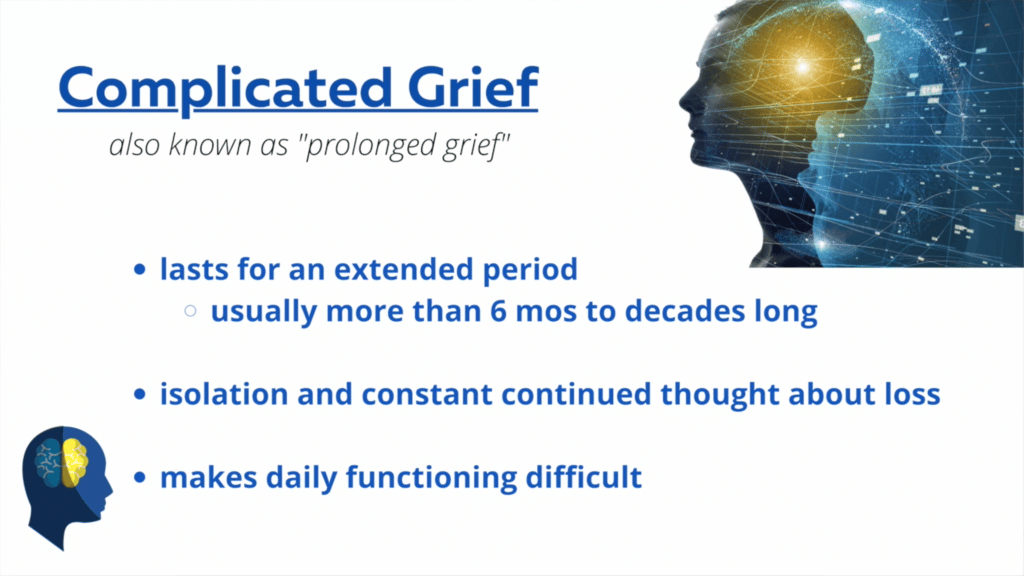Grieving a loss is a natural part of life that everyone will experience. For a certain number of individuals, grief or bereavement can become more complicated and can create additional difficulties (this is also referred to as “prolonged grief”).
There are some myths about the nature of grief (for example, grief “processing” is necessary in order to move on) and this clip describes normal and healthy grieving as well as grieving that can be more complicated and difficult.
I also recommend a great book on grief by George Bonanno at Columbia University. His book is an easy-to-follow resource with personal stories and what the latest research tells us about the nature of grief. Check it out!
Welcome back, I’m Dr. Matt B and these are your Emotional Minutes. Today we’re talking about grief. Grieving is definitely a difficult thing, it’s something everyone will experience in their lives.
Research shows that losing a job or a relationship has a lot of similar experiences to losing a loved one. The COVID-19 pandemic has caused many people in the world to lose loved ones, jobs, and contact with people. So, today we’re talking mostly about grief in terms of losing a loved one or losing a job.
Experiencing Grief
Grieving is one of the most natural things that we as humans actually experience. Typically when experiencing grief, people tend to feel a deep sense of sadness or longing for a number of weeks. Sometimes even months. For a small percentage of people, those experiences continue for very long periods of time, years or even decades.
There’s an old concept about grief that’s inherent in our culture. Its the belief that you have to process or think through the grieving experience. I’ll hear a lot of patients or clients say they never processed the loss.
Does Processing Grief Benefit You?
Research in the last couple decades has found that the deeply processing and thinking through or concentrating on the loss can be detrimental for your mental health. Sometimes, when people “think through” their grief, they’ll stay with those experiences much longer.
Research shows that what it comes down to is people losing a sense of identity when they grieve. When you have a job or person in your life that contributes to your sense of self, losing them can affect your sense of identity.
There’s been some pretty strong evidence that people who experience long-term periods of grief may be having difficulty reconnecting with their sense of self. Therefore, they may have a hard time finding things or activities that give them a sense of self after the loss.

Reconnecting to Move Past Grief
One thing that shows promise is reconnecting with activities or individuals that give you meaning and a sense of pleasure. Doing this can help you to reconnect with that sense of who you are. Then individuals are able to move forward following one of those more long-term periods of grief that they might experience.
Nobody really forgets to say if it’s a person they lost. No one ever really forgets the person, or forgets what that person meant to them. But they’re able to reconnect with some of their sense of self and re-engage in their lives.
Learning More and Seeking Help
If this topic interests you, I recommend a book called The Other Side of Sadness by George Bonanno. It’s nicely written and easy to understand for any audience. He covers a lot of cool stories. In addition, he talks about the research he’s done and what it’s revealed about grief and its nature.
If you find that you are grieving and it’s affecting you, I recommend contacting a mental health counselor. Grief can be an understandably really difficult experience, especially if it continues for many months, years, or decades.



